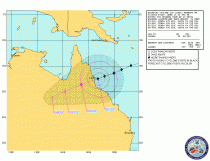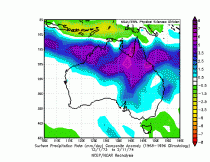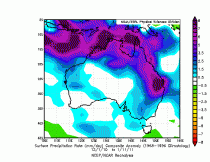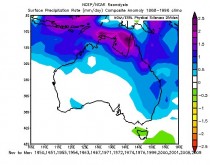Kirk Myers is one of Icecap’s favorite environmental writers. Here are two of Kirk’s latest postings.
By Kirk Myers, Environmental Examiner
“The Arctic Ocean is warming up, icebergs are growing scarcer and in some places the seals are finding the water too hot,” according to a Commerce Department report published by the Washington Post.
Writes the Post: “Reports from fishermen, seal hunters and explorers. . . all point to a radical change in climate conditions and . . . unheard-of temperatures in the Arctic zone . . . Great masses of ice have been replaced by moraines of earth and stones . . . while at many points well-known glaciers have entirely disappeared.”
More evidence of human-caused global warming? Hardly. Read much more as Kirk does an historical perspective on this topic which has intrigued the media for over a century.
-------
CO2-molecule lobby plans to clear air about global warming
By Kirk Myers, Environmental Examiner
Climate experts, politicians, environmentalists and assorted green organizations have been beating the daylight out of CO2 for decades, charging it with a litany of crimes against Mother Earth - heating the atmosphere, melting ice caps, raising sea levels, acidifying oceans, driving polar bears to extinction and generally making a mess of things on the planet.
As the hobgoblin of the green movement, CO2 has taken it on the atmospheric chin. But what if CO2 had its own atmospheric lobby and could fight back? Perhaps we might see a story like this one in the news.
***
ORLANDO, Fla. - Faced with growing criticism, the CO2-molecule lobby said today that it will no longer take the heat for earth’s climate change, and has launched a campaign to restore its blackened reputation.
“It’s time to clear the air about the benefits of CO2,” announced chairman Nate Carbo at today’s Alliance of CO2 Molecules (ACO2M) tropospheric conference held high above Walt Disney Resort. “CO2 molecules have been the climate fall guy for years. We’ve been unfairly charged with crimes against humanity. Now we’re going to fight back with all our molecular energy.”
Chairman Carbo said ACO2M’s executive panel has drawn up a list of grievances that it will send this week to CO2 critics at the White House, Intergovernmental Panel on Climate Change (IPCC), EPA, Climate Research Unit (CRU), NASA, Goddard Institute of Space Studies (GISS) and major environmental organizations. A copy of the preliminary draft, received earlier today, makes the following 10 demands:
1. Stop calling CO2 molecules a pollutant - - Plants depend on CO2, and they’ve been CO2-undernourished since the Jurassic period (an era plants refer to as “photosynthesis heaven") when our molecular presence was nearly five times higher than current levels. Not surprisingly, the CO2-famished plants of today are green with envy. (Note: The world’s plant life is solidly behind our organization in backing this demand. They’ve given ACO2M the power of attorney to represent all earth vegetation in a lawsuit against Carol Browner and the scientists at the EPA, which recently declared CO2 a pollutant.)
Read the other 9 demands and more in Kirk’s post.
Fred reports in New Scientist on the meeting that intended to achieve reconciliation between sceptics and alarmist scientists. Here is an excerpt:
By Fred Pearce, New Scientist
Climate sceptics offer a peace deal. Well, no it wasn’t quite like that. But in Lisbon, Portugal, last week, I joined a group of 28 climate scientists, bloggers and professional contrarians who spent three days discussing how to encourage reconciliation in the increasing fractious debate about the science of climate change.
The meeting was the brainchild of University of Oxford science philosopher Jerry Ravetz, an 81-year-old Greenpeace member who fears Al Gore may have done as much damage to environmentalism as Joseph Stalin did to socialism. Post-Climategate, he found climate science characterised by “a poisoned atmosphere” in which “each side accuses the other of being corrupt”. Mainstream researchers were labelled “ideologues on the gravy train”, while sceptics were denigrated as “prostitutes and cranks”.
His dream of an instant rapprochement in Lisbon didn’t come off. The eventual make-up of the workshop, paid for by the European Commission, was too lopsided in favour of the sceptical camp.
Those making the trip included heroes of the sceptics such as statistician Steve McIntyre and economist Ross McKitrick, plus writers and bloggers such as Steve Mosher, the man who broke the Climategate story, and “heretical” scientists such as Georgia Tech’s Judy Curry and Peter Webster.
Avowed non-sceptics included Hans von Storch, a lead author for the Intergovernmental Panel on Climate Change, and James Risbey of CSIRO. But the leaders of mainstream climate science turned down the gig, including NASA’s Gavin Schmidt, who said the science was settled so there was nothing to discuss.
Across the spectrum, participants were mostly united in disagreeing with Schmidt. Climate science, they said, is much less certain than the IPCC mainstreamers say, and peace can be found only if all accept what they dubbed “the uncertainty monster”.
Bridie Smith in the Age wrote about the Cat 5 cyclone Yasi threatening flood ravaged Queensland.
“Yasi may be Queensland’s third cyclone in five weeks but it is not a symptom of a warming planet. What can be attributed to global warming are some of the conditions that have contributed to the cyclone’s severity - namely the record-high sea surface temperatures.
“Extremely warm waters are potentially fuelling those cyclones,” said Andrew Ash, director of CSIRO’s Climate Adaptation Flagship. “The conditions are there to potentially make these events more extreme or more intense.” The Coral Sea, where cyclone Yasi formed, is about 28.5 degrees. The high ocean temperatures, which generate more evaporation and a better source of energy for cyclones, coincide with a very strong La Nina event - part of natural climate variability - bringing moisture to north-eastern Australia.
“This [La Nina] event is close to the strongest on record,” Dr Ash said yesterday. “It’s very similar to the event in 1917-18 and interestingly we had two very large cyclones in early 1918 associated with that strong La Nina event.”
ICECAP NOTE: The winter of 1917/18 was among the coldest on record in the United States - bearing some similarity to this year. It was a time coming off a very long and quiet solar minimum like this year. It was a strong La Nina in a cold PDO, again all like this year.
Here is the latest forecast and satellite image of Yasi.

Yasi enlarged.

Yasi enlarged.
The operators of the Wivenhoe dam have not learned from the recent experience when the mitigation capacity proved totally inadequate. The dam is 100% full as the cyclone approaches the coast, but the operators are following the book.
-------
Flooding historically in Queensland has occurred in La Ninas in cold PDO years, conditions occuring this year. A similar major flood occurred in 1974, a strong La Nina winter in the 1947-1977 cold PDO phase. This was shown in numerous peer review papers.
A similar major flood occurred in 1974, a strong La Nina winter.

Precipitation anomalies in the 1974 flood year through February 11 enlarged here.

2010 precipitation anomalies through January 11 enlarged here.
In fact if you composite all La Nina years with cold PDO you get this Queensland wet signal (November to March).

Enlarged here.


